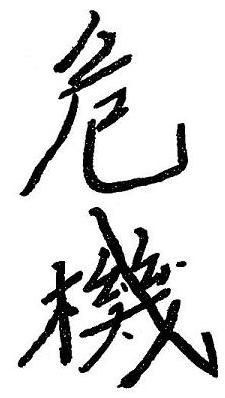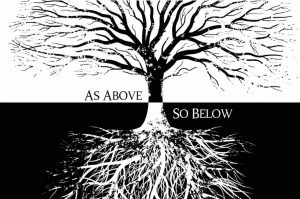Transformation usually doesn’t happen gradually. It comes quickly, and normally in response to crisis.
We are witness to a world of converging crises. Climate change, refugee crises, deforestation, overfishing, mass extinctions, pollution of land, sea and sky, the list goes on.
To many, these problems seem insurmountable. But what if you held the keys to solving all the issues of our time. And more importantly, what if you felt that power within you?
I want to spark in you the feeling of that power. That this is very much your crisis to deal with and it is your action and not the action of anyone else, that is actually going to make the difference.
There is a very old saying “as above, so below”.
Let’s start there.
For crisis to be so pronounced without, know that there is actually an inner challenge you either must face, or succumb to.
Through the appropriate response to and resolution of an internal crisis, the external crisis will reach its resolution as a natural course.
But are you up to the task of recognising the challenge and willing to do the work of being the change you wish to see in the world?
Recently, i was listening to a podcast featuring the inspiring Paul Gilding, ex-CEO of Greenpeace and author of “The Great Disruption”. For the remainder of this article I am going to reference and paraphrase Gilding heavily as his message is both powerful and relevant here.
Gilding has spent most of his life working the problems of change in the world. After years of working to make big change ‘without’ with special focus at the highest levels of corporate power, he has the following to say .
“What I learned when I had finally reached the pinnacle of the corporate sector was this; I was going to Davos every year where the rich and powerful gather. I was flying in their corporate jets, I was talking one to one with CEO’s of large companies. And I thought ‘great, i’ve finally found the guys in charge’. I can sit down with them and talk to them and convince them we need to change.”
What Gilding found was that convincing the corporate leaders of the need to change wasn’t difficult, in fact most of them actually wanted the change Gilding was advocating for. But that wasn’t the most surprising part. These captains of industry, titans in their fields also felt powerless to effect the change needed. Even having achieved their own personal pinnacles of power they still feel they are not in charge. Gilding tells how the leaders of the corporations are often blamed for the massive harm their companies bring. However, they suffer the very same fears and challenges around change as we do, and often tell of feeling like imposters.
Gilding’s eventual realisation was “actually no one is in charge”. The most powerful corporate CEO’s held to a common sentiment; that upon reaching the zenith of power they don’t really have the power they thought they would have to drive change.
While this might sound disconcerting and hopeless, Gilding goes on to say this is actually a very powerful realisation, because what it leaves us with is this: We are all in charge.
What we think is small is actually everything. It is only the small things together, a combination of all the minute individual changes that actually drive transformation.
Gilding goes on to provide the insight that transformation isn’t going to come from great leaders who are coming to save us, that systems only change when we ourselves change. Everything we do, everything that feels small is exactly what triggers the creation of the change we as seeking in this world, what Gilding calls “The empathic civilisation”. From installing solar panels, to making better choices about where to source food, through to treating a stranger with kindness, it’s all the smallest things added up together that make big change.
Under the presidency of Trump the myth that incremental small change is enough has been shattered (the reversal of the Climate Change policy and the dismembering of Environmental Protection Agency, are but two examples). The world’s most prosperous nation is now serving in its bringing the converging crises of our time to a head. The illusion that gradual change will eventually come to save the day has been exploded.
There is an old world view of how change works; community activist groups advocate for it, companies resist change it and Governments adjudicate on it. But this is the old illusion that perpetuates itself. A set up where someone else is always to blame.
We are now waking up to the way real change happens. Real change starts within; when we all change together, and when we all change at the same time. And when is this most likely to happen? In crisis.
Gilding leaves us with some good news. He says that the free market is already pointing to the ultimacy of change. Electric car company Tesla last year manufactured only fifty thousand cars, is yet to post a profit, and boasts a fifty billion dollar market capitalisation. In juxtapose, GM produces nine million cars a year, boast around two billion dollars in annual profit and has a similar market cap. The numbers don’t lie, the market will lead and go with change to survive.
In the history of things, the old is always being destroyed to make way for the new. This is happening now on a massive scale. It’s happening inside the markets and it’s happening in our heads and hearts.
The greatest crisis of our time is, in truth, our greatest opportunity.


